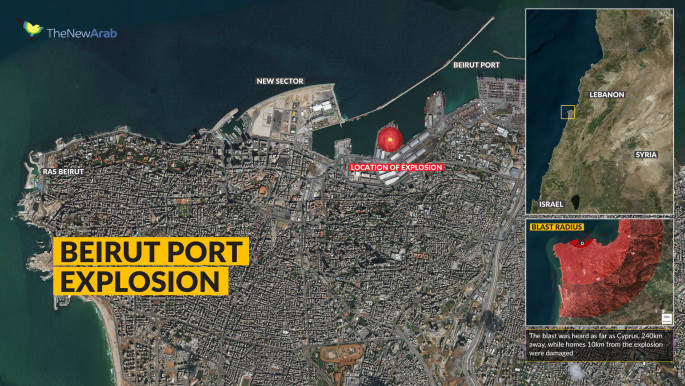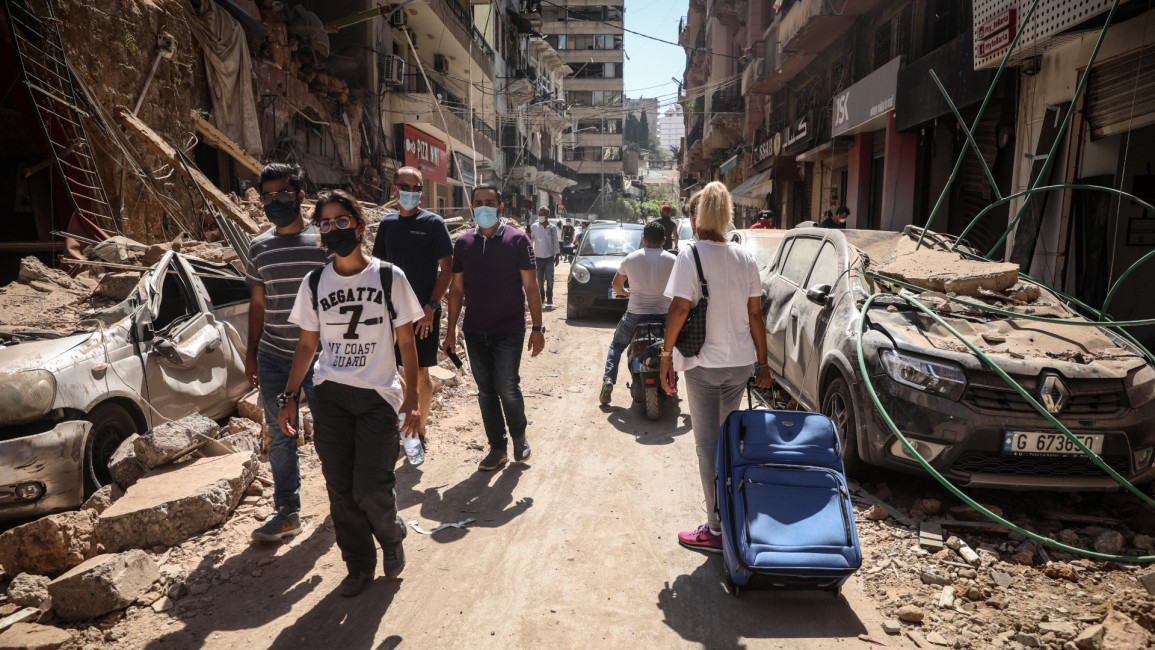World Bank says it 'intends to help' fund Beirut as Lebanon risks further economic collapse
World Bank says it 'intends to help' fund Beirut as Lebanon risks further economic collapse
The World Bank has offered to look into ways of aiding Lebanon as the country sinks further into financial crisis.
3 min read
The death toll rises [Getty]
The World Bank has said it intends to help Beirut financially after an explosion at a warehouse by the port left over 100 people dead, thousands injured and some 300,000 people homeless.
In a statement, the World Bank Group said on Wednesday it intends to assess the country's damage and will work with partners to gather public and private financing to aid in reconstruction.
The World Bank said in a statement to Reuters that it "would be also willing to reprogram existing resources and explore additional financing to support rebuilding lives and livelihoods of people impacted by this disaster".
Lebanon has announced a two-week state of emergency in Beirut, as 135 people died in the devastating explosion, with the death toll likely to climb.
This comes as Lebanon faces devastating financial consequences in the aftermath of the explosion, at a time when it already suffers a financial crisis.
Ammonium nitrate, which Lebanese authorities have said caused the devastating Beirut blast, is an odorless crystalline substance commonly used as a fertiliser that has been the cause of numerous industrial explosions over the decades.
Lebanese Prime Minister Hassan Diab said 2,750 metric tons of ammonium nitrate that had been stored for years in a Beirut portside warehouse had blown up, causing widespread damage to the Lebanese capital.
The explosion destroyed half of the capital city and caused billions of dollars’ worth of damage, and sunk ever further into the depths of an economic crisis that has raised poverty levels to as much as 50 percent of the population.
Few Lebanese will be able to afford to repair or rebuild their homes.
|
In fact, experts are predicting a further economic crash will result from the aftermath of the explosion.
"It's an economic crisis, a financial crisis, a political crisis, a health crisis, and now this horrible explosion," Tamara Alrifai, spokesperson for the UN Relief and Works Agency for Palestine Refugees in the Near East, told Reuters.
"So there are many layers to what is happening in Lebanon that is constantly testing the ability of the Lebanese and the refugees who live in Lebanon to be resilient."
With the destruction of Beirut’s ports and the country’s main grain store silo, experts predict consequences that will reach further than the capital city.
Read more: Beirut Explosion: Be angry, not just sad, for Lebanon
"The effects are severe. The harbor is destroyed, and the harbor was one of the main gates for imported food.
"That becomes inoperative for the next weeks, even maybe months," Hans Bederski, national director of the refugee aid group World Vision said.
"And that will affect all people, not just in Beirut but also the rest of Lebanon, no matter whether Lebanese citizens or refugees."




